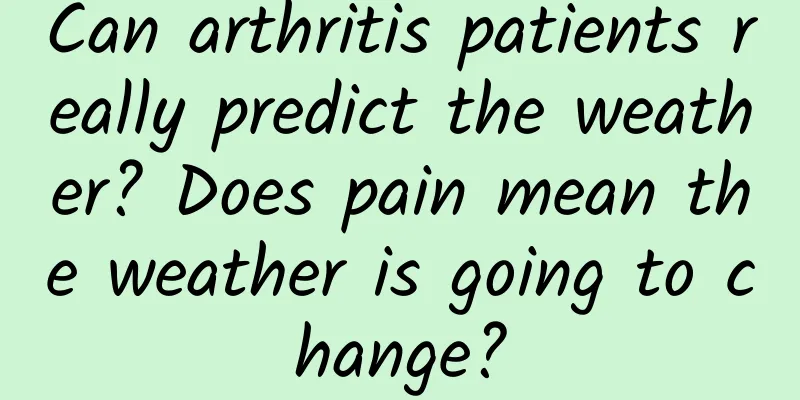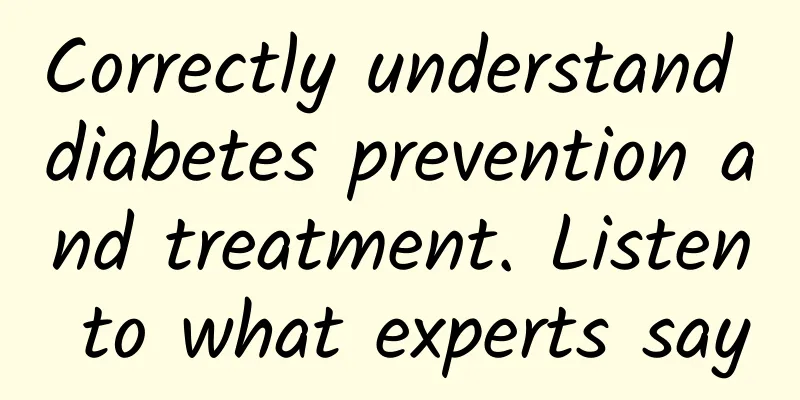Can arthritis patients really predict the weather? Does pain mean the weather is going to change?

|
My grandma suffers from arthritis and has not recovered after many years of treatment. Every time before it rains, she always sighs, "The weather is going to change." I personally feel that what my grandma said is quite accurate. Can human joints really predict the weather? Also, how can we protect our joints when the weather changes? First of all, I would like to answer you that it is possible. Generally speaking, people who have this kind of "superpower" are usually the following two types of people: One category is the elderly, especially those with arthritis, who may experience joint pain, stiffness or worsening symptoms before the weather changes; Another type of people are those who have old injuries in their joints, who may suddenly feel a recurrence of these old injuries at this time. As to whether this type of joint pain is really related to the weather, there are quite a few studies on this. Unfortunately, the medical community has not reached a consensus yet, but rather the "relevant theory" and the "irrelevant theory" coexist. The "relevant theory" believes that the key lies in air pressure. Before the weather changes, there is often a sudden drop in air pressure. When the joint capsule is stimulated by the change in air pressure, it can induce synovial edema, which in turn compresses the already sensitive pain nerves and aggravates the pain. People with milder joint injuries and sensitive constitutions are usually more susceptible. The "irrelevant theory" believes that this is more likely an illusion. Because of the long-standing view, arthritis patients may selectively remember only the pain when the weather is bad and forget the pain when the weather is pleasant. There are even studies that have concluded, by analyzing search engine data, that weather changes are "inversely correlated" with joint pain, meaning that more people suffer from joint pain when the weather is good. Regardless of the truth, rather than saying that joints can predict the future, it is better to say that people who have this ability may have problems with their joints and should see a doctor! Having said that, if your grandma does often suffer from joint discomfort when the weather changes, then moving to a warm and dry place or a place with spring-like weather all year round may help. However, moving is not realistic after all. So, when the weather changes, it is key to take good care of your joints. You may want to do the following: Pay attention to keeping warm and add clothes in time; wear protective gear to protect joints; do moderate exercise to increase local blood flow to joints; actively seek treatment to relieve symptoms, etc. |
Recommend
What does visible yolk sac mean?
After the pregnancy is detected, further examinat...
What can't you eat if you have ovarian cysts?
In recent years, the incidence of ovarian cysts i...
Treatment of Trichomonas vaginitis
Trichomonas vaginitis is a common gynecological d...
Women will feel comfortable if they persist for 3 minutes every night
Nowadays, most women sit in the office all day an...
How to feel the fetus at 14 weeks of pregnancy
When you are 13 weeks pregnant, your baby already...
Have you been too sweet? Please check these blood sugar knowledge
Improving the scientific literacy of all citizens...
What are the three types of breast fibroids?
The mammary gland is the glandular tissue inside ...
What to eat after curettage?
In fact, artificial abortion can cause great harm...
How many days is a delay in a woman's menstrual period considered normal?
Women's menstrual cycles are regular to a cer...
What is the cause of vulvar ulcer? Be alert to 6 reasons
Vulvar ulcer is also a disease that female friend...
What causes lower back and leg pain during pregnancy?
Pregnancy will inevitably have some effects on th...
How to treat constipation in women
Constipation is a very troublesome thing for many...
Delayed second menstruation after medical abortion
If an unmarried girl accidentally gets pregnant, ...
What are the benefits of breast milk?
What are the wonderful uses of breast milk? This ...
Ovulation day 16 whiteboard
If the result is still white on the 16th day afte...









